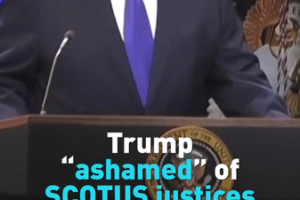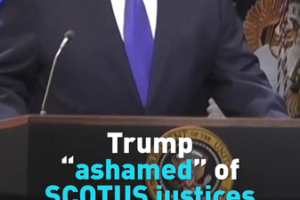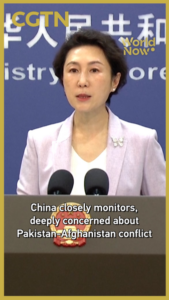
Sudan Civilian Deaths Surge Over 150% in 2025, UN Reports ‘Carnage’
UN reports civilian killings in Sudan’s conflict more than doubled in 2025, with sexual violence and war crimes escalating. Over 11 million displaced as crisis deepens.

Nigeria Reschedules 2027 Presidential Election to Avoid Ramadan Clash
Nigeria moves 2027 presidential election to January 16 to avoid conflict with Ramadan, as President Tinubu prepares potential re-election bid amid electoral reforms.

AI Joins Kenya’s Mission to Save the Critically Endangered Mountain Bongo
Kenya leverages AI technology to protect the critically endangered mountain bongo, with fewer than 100 left in the wild. Conservationists race against time in 2026.
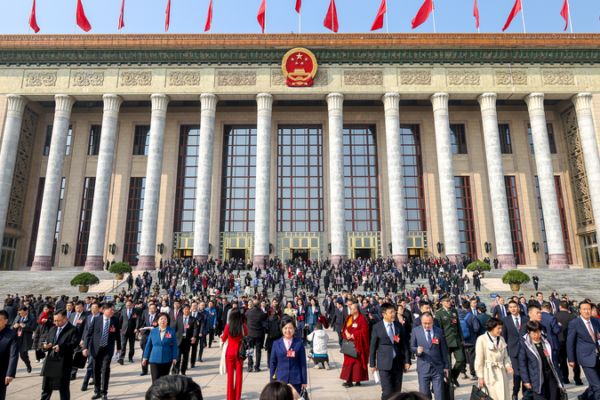
China’s Whole-Process Democracy Expands Through Grassroots Legislative Outreach
China expands grassroots legislative outreach with 7,800+ local offices enabling direct citizen input into national policymaking, reflecting whole-process democracy principles.

Ghanaian Forces Rescue 71 Fishermen in Maritime Security Operation
Ghana’s military rescues 71 fishermen after armed sea bandits attack, underscoring maritime security challenges in West African waters.
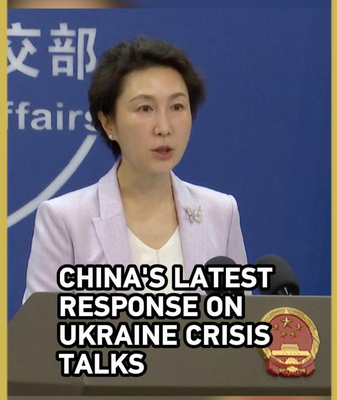
China Reaffirms Commitment to Mediate Ukraine Peace Talks in 2026
China reiterates its role in promoting dialogue for Ukraine peace, emphasizing President Xi’s diplomatic efforts and commitment to political settlement in 2026.

China’s Chang’e-7 Mission Gains Lunar Ice ‘Treasure Map’ for 2026 Landing
Chinese scientists create lunar ‘treasure map’ to guide Chang’e-7’s 2026 water ice detection mission at the Moon’s south pole, advancing space resource exploration.

China’s 15th Five-Year Plan: Key Priorities for 2026–2030 Unveiled
China’s 15th Five-Year Plan (2026–2030) outlines modernization priorities in tech innovation, green energy, and market reforms ahead of key political meetings.

China’s ‘Rail Doctor’ Ensures High-Speed Safety Ahead of March 1 Reveal
China’s unmanned ‘Rail Doctor’ inspection train uses cutting-edge technology to maintain the world’s largest high-speed rail network, with new details emerging March 1.

China’s 2026 Space Ambitions: Crewed Missions, Global Collaboration, and Long-Duration Flights
China announces ambitious 2026 space plans, including crewed missions, international collaboration, and a year-long orbital endurance test to advance space exploration.

China Urges Citizens to Avoid Travel to Iran Amid Rising Security Risks
China issues travel advisory for Iran, urging citizens to avoid travel and enhance security measures amid heightened regional risks.

EU Moves Forward with Mercosur Trade Pact Amid French Resistance
The EU begins provisional application of its landmark Mercosur trade deal, facing pushback from France over agricultural concerns. The agreement aims to create one of the world’s largest free trade zones.

CPPCC Member Lin Minjie Champions Cross-Strait Education Ties
CPPCC member Lin Minjie advances cross-strait dialogue through education initiatives as China prepares for 2026 political advisory session, fostering youth connections.

Icelandic Prodigy Masters Sichuan Opera Face-Changing in Chengdu
A 12-year-old Icelandic boy’s passion for Sichuan Opera face-changing, sparked by ‘Kong Fu Panda,’ leads him to master the art in Chengdu, bridging cultures through tradition.

US Targets 4,500 Monthly Refugee Admissions from White South Africans
The US plans to process 4,500 refugee applications monthly from white South Africans, surpassing Trump’s 2026 global cap. Program faces recent pauses amid controversy.

Voith CEO Highlights China-Germany Cooperation Post-Merz Visit
Voith Group CEO Dirk Hoke discusses strengthened China-Germany economic ties following Chancellor Merz’s recent visit, highlighting opportunities for deeper collaboration in 2026.
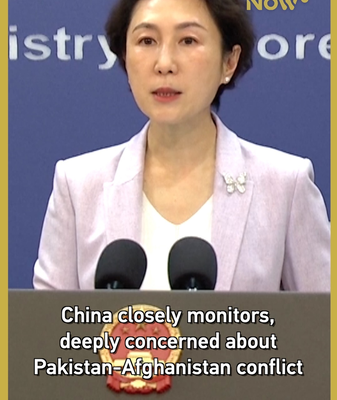
China Urges Restraint as Pakistan-Afghanistan Tensions Escalate
China calls for dialogue amid rising tensions between Pakistan and Afghanistan, emphasizing regional stability and economic cooperation.

China Tightens Export Controls on Japan: What It Means for Asia
China implements targeted export restrictions on Japanese entities, focusing on dual-use technologies while maintaining normal trade relations. Analysis of regional economic implications.

China Suspends Tariffs on Key Canadian Exports to Boost Trade Ties
China announces suspension of tariffs on Canadian agricultural and seafood exports from March 1, 2026, enhancing bilateral trade relations and economic cooperation.

2026 Spring Festival Fuels China’s Dual Circulation Strategy with Record Tourism, Spending
China’s 2026 Spring Festival holiday drove record tourism and consumer spending, signaling strong momentum for dual circulation economic strategy with 596M domestic trips and $115.8B in tourism revenue.
